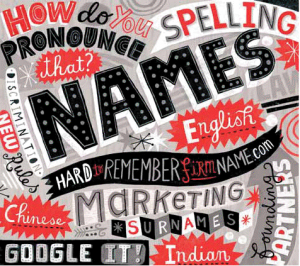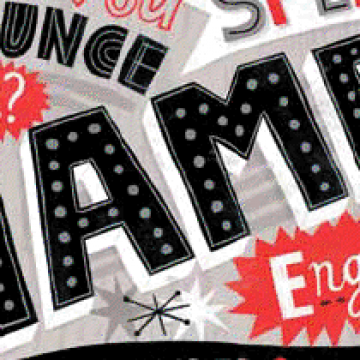 What’s in a name? More precisely, the name of a law firm? In 2004, the Law Society of Upper Canada adopted rules allowing lawyers to label their businesses with something other than their own surnames.
What’s in a name? More precisely, the name of a law firm? In 2004, the Law Society of Upper Canada adopted rules allowing lawyers to label their businesses with something other than their own surnames.
There’s a catch: solo and partnership firms can implement these new rules at their own discretion without the involvement of the LSUC. However, lawyers and paralegals running their businesses as corporations must go to the Law Society for written approval — and getting approval is not a simple matter. The process can be complicated, lengthy and not always transparent.
For the LSUC, this might be just a name game, but for the increasingly diverse membership of the bar, this is anything but a game. It’s about branding and business and fundamental fairness.
When it comes to the sale of legal services, the LSUC exerts significant pressure, making lawyers operate within a narrow set of guidelines that harken back to another era — and with enough loopholes and exceptions to warm the heart of any tax lawyer.
The traditional approach of using surnames, such as Jones & Smith LLP or some other variation limited to the use of the names of partners, is no longer tenable. Yet for all the rule changes, it still seems to be the gold standard, at least in the mindset of the Society. Today’s lawyers need to be able to market their services and create a brand — one that can hold its own when compared to the establishment firms.
The simple problem is this: if your name is “exotic,” long and/or difficult to pronounce or spell, then you have a marketing problem. If you have a marketing problem, you have a client problem. And if you have a client problem, you have a business problem.
Don’t take it from me (although my last name is Carayiannis). In 2011, a Canadian study compared job applicants with English-sounding names to those with Chinese or Indian names. English names were 35 percent more likely to be contacted by employers. In the legal world this has the effect of favouring the establishment law firms with Western-sounding names or worse, relegating lawyers with “foreign”-sounding names to ghettoized practices. (You might be a lawyer from a recent immigrant community, but that does not mean you want to limit your practice to immigration law.)
This problem is only made worse by the Internet, as many lawyers rely on search engines for advertising. Your firm’s ranking in a search and the ability to easily type an email address are the keys to communication and, consequently, commerce.
The LSUC has valid concerns about advertising and marketing through firm names. It doesn’t want these names to be false, misleading or likely to cause confusion. It doesn’t want crass marketing that would bring the administration of justice into disrepute. Nevertheless, this is a subjective standard. These concerns must also be balanced against a lawyer’s ability to present her services on an even playing field and not be subject to discrimination.
While the LSUC might respond that it treats all lawyers fairly by authorizing the use of any surname, it also ends up favouring those lawyers whose names have marketing appeal. If your name is Smart, Good or Wise, then the LSUC is favouring you. If it’s Hussein, Papadopoulos or Nguyen — common surnames — you’ll get approval, but perhaps not
a long client list.
Given the increasingly diverse composition of the bar and the importance of communicating with the public, the LSUC needs to revisit its approach and change the rules so they are equal for everyone in the profession. The current rules are confusing, discriminatory and put the seemingly minor detail of a name above all else.
Peter Carayiannis is the president and founder of Conduit Law Professional Corporation.
Illustration by Linzie Hunter


